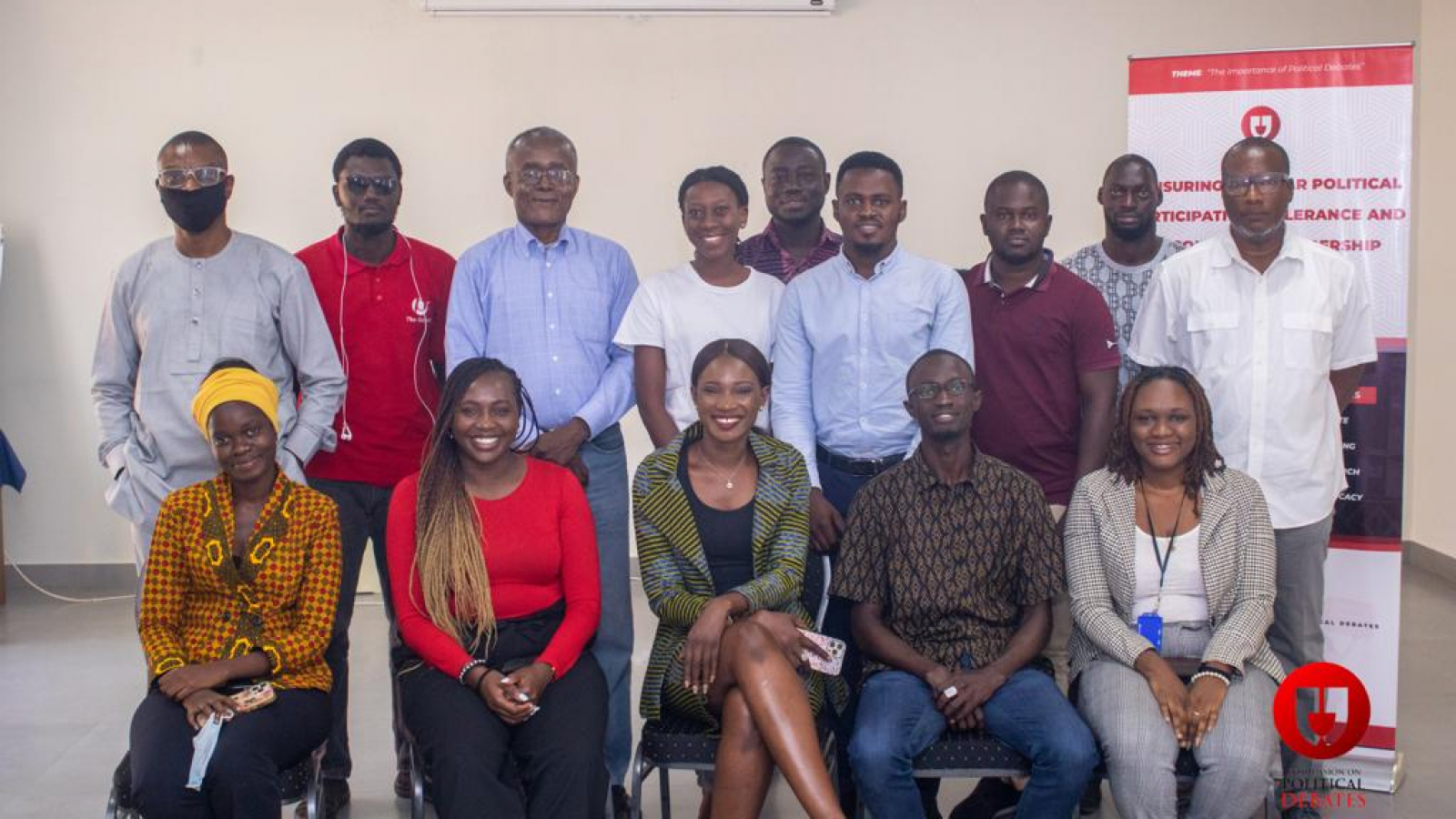
SHARE
ISSUES
On November 20, 2021, two presidential candidates in The Gambia took to the stage in an historic moment to debate their policies and plans ahead of the December 4 presidential election. This was the first debate between presidential candidates since The Gambia became an independent state in 1965. Until December 2016, when Gambians voted out then-President Yahya Jammeh, the mere discussion of politics or the slightest criticism of the country’s leadership could result in arrest, forced disappearances or worse. As a result, instead of substantive policy-based political discourse or ideology-based politics, political campaigns and dialogues were defined by rallies, personal attacks and affiliations based on identity and ethnicity.
BeFunky-photo (1).jpg

In the months preceding the country’s presidential election in 2016, Gambians began to demand more from their leaders. A group of recent graduates of the University of The Gambia founded the Commission on Political Debates (CPD) and, at great personal risk, organized the country’s first attempt at a presidential debate. While the presidential candidates themselves did not take the debate stage, representatives of opposition parties did participate, opening the door for increased political discourse in the country. The opposition coalition went on to win the election, and a new president was inaugurated for the first time in 22 years. The CPD went on to successfully organize the country’s first national assembly debates in 2017, mayoral debates in 2018 and the country’s first-ever debate among youth leaders of political parties in October 2021.
BeFunky-photo (2).jpg

As the 2021 presidential contest approached, the CPD, in partnership with the National Democratic Institute, organized the first ever presidential candidate debate. In the lead-up to the debate, the Commission consulted all six nominated candidates, including the incumbent president, and all promised to attend the debate. On debate day, however, two of the six presidential candidates chose to participate. The four candidates who abstained faced public backlash as voters turned to social media, newspaper commentaries and other local platforms to register their disappointment.
The two debaters took turns describing and defending their policy agendas in five thematic areas: education, health, agriculture, economy and infrastructure. Two well-regarded media personnel moderated the debate, guided by a set of rules developed by the CPD, in partnership with The Gambia’s Inter-Party Committee. Over 200 representatives of civil society, political parties, the general electorate and the diplomatic corps attended. The debate aired nationwide on radio and television stations, and was broadcasted in six languages: English, Fula, Mandinka, Jola, Wolof and sign language.
BeFunky-photo.jpg

The 2021 presidential debate set a new bar for political debate in The Gambia. The buzz generated by the event, and the backlash against candidates who chose not to participate, have set high expectations that more presidential candidates will be willing to debate publicly in the next election. NDI plans to continue to assist the CPD as they lead the way in entrenching substantive policy discourse in Gambian politics by building public pressure to compel candidates to participate in debates, including those held ahead of the National Assembly election in April 2022. In so doing, NDI and the CPD hope to create civic awareness, encourage accountability and help voters make informed judgements about the nation's leaders.
Author: Lala Touray, NDI Senior Program Assistant, The Gambia
NDI is a non-profit, non-partisan, non-governmental organization that works in partnership around the world to strengthen and safeguard democratic institutions, processes, norms and values to secure a better quality of life for all. NDI envisions a world where democracy and freedom prevail, with dignity for all.


